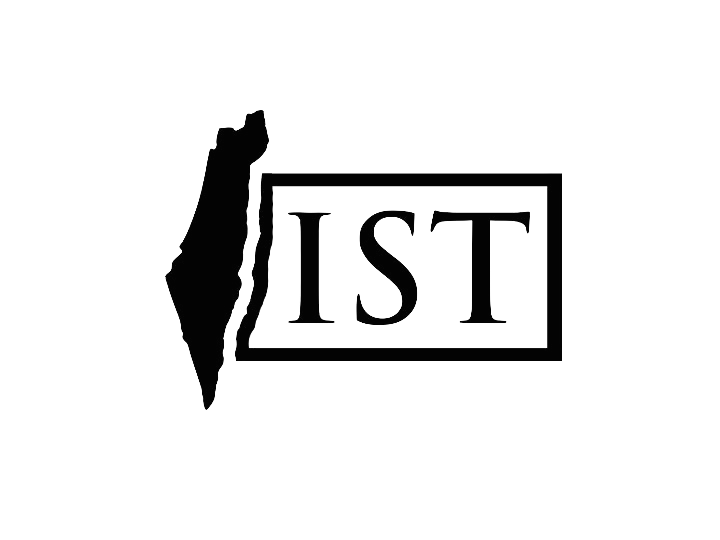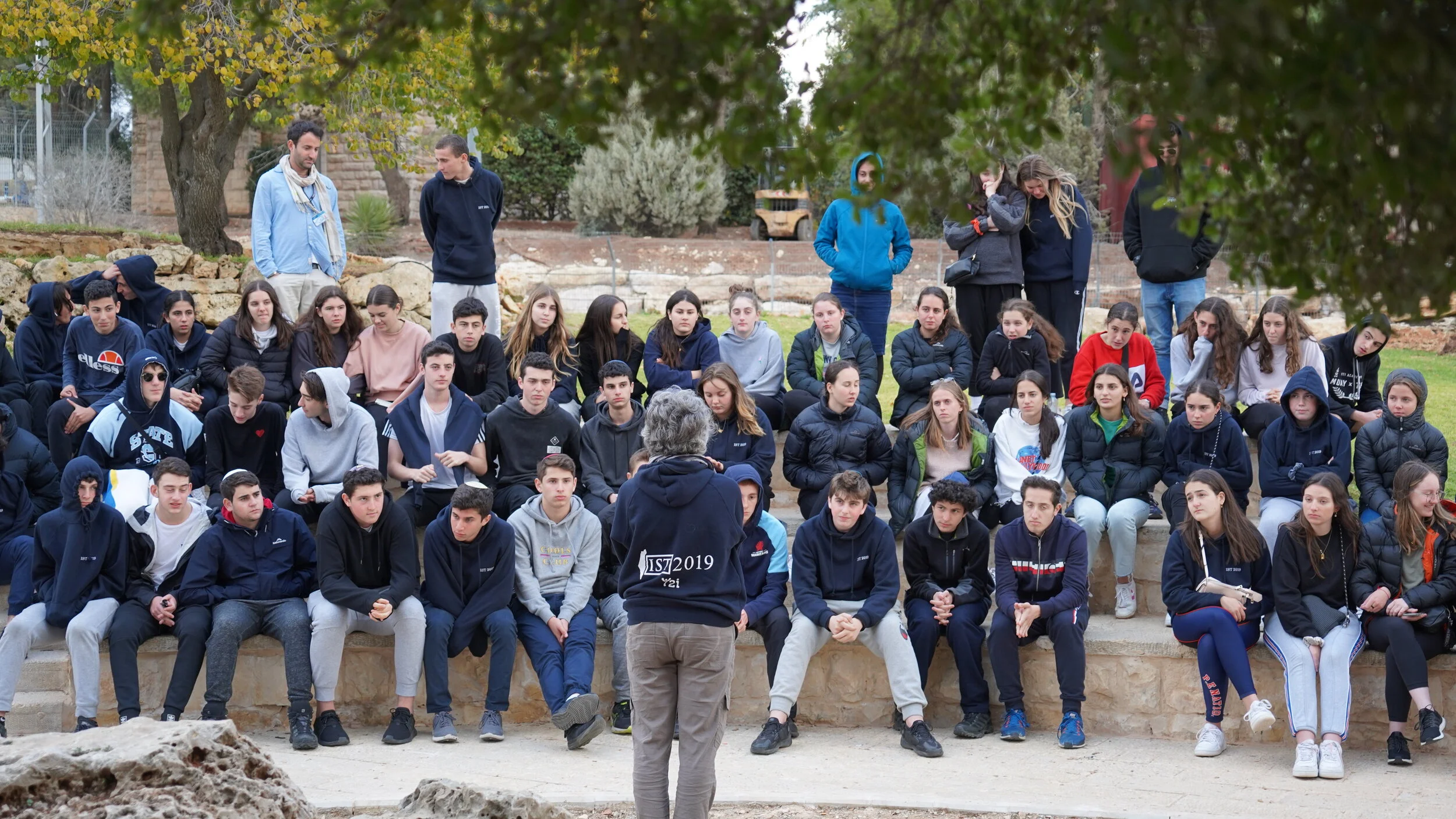Day 16/17/18 - JNF - Netzach - Noah
We started off our HaShomer HaChadash experience with an early wake up overlooking the stunning Kinneret. After eating our last rougelach, and having our last shacharit overlooking the waters of the Kinneret, we were off for the Negev. We drove south, with sweeping views of the Dead Sea and the Jordan Valley.
After multiple bathroom breaks due to our “atrocious bladders ~ Ms. Kassis”, we arrived in a park for an introduction to HaShomer HaChadash, and had a long awaited BBQ that was “soooooo good”. We learnt how HaShomer HaChadash was started out of a need of protection for farmers who have their crops stolen, damaged, and burnt. HaShomer HaChadash specialises in education for Israeli farmers on the borders, and provides volunteers to help them.
We then took a short drive to our first activity, which was a hike through the valleys in the Negev. While being guided through the rock crevices that have been formed by water over hundreds of years, we learnt about the dangers and tragedies caused by flash floods.
We then settled in our campsite for the night, where the Eastern-suburbs royalty were introduced to a communal bathroom experience. After being physically defended by, and then lectured by Ms Kaissis about the different “demographics” of the other school with us, some of us required escorting from our resident army commander, Josh, to use the bathrooms. We ended our exciting night by the bonfire, before going to sleep... only to be woken up the next morning at 6 to Israeli rap.
Early the next morning, with tears in our eyes, we handed in our phones before heading off to assist a local farmer, Dovi, in his olive grove. Out of our comfort zone yet again, we got grubby as we snipped the bad branches of the trees. We then sat down for a tochnit with our HaShomer HaChadash madrichim, where we learnt about how rather than importing food, Ben Gurion was adamant that Israel grow their own food, and that it was an integral part of independence. Something interesting that stood out for me was how farmers don’t buy land for farming in Israel. Rather, they sign an agreement with the state to ‘work and guard’ the land. HaShomer HaChadash exists to help the farmers guard their land, as guarding an entire field is not easy for a single farmer. After learning how almost all the borders are agricultural land, we all came to appreciate the sacrifice these farmers make, by literally living on the edge for the benefit of Israel.
We then drove to lunch, where we were greeted with a traditional meal on the floor of tents, with coffee and tea to top it off. A short walk led us to our next activity - camel riding. Screaming as we were thrown into the air on the back of camels, we quickly named our camels. Some of our creative names consisted of Josephus, Osama, Hummus, and ISIS. Soon after, and with sore bums, we were challenged with unmounting the camels, but most of us were thrown off instead.
Once back at the campsite, we all participated in team building activities with our groups, before heading to another bonfire. Some of us dared to mingle with the other students at the campsite, relying on our Moriah Ivrit knowledge to initiate a game of soccer - thanks Moriah. Just before curfew, in a reunion stronger than some of the student’s reunion with their homeland, we were given our phones back. Having barely survived, we all crashed in our beds.
Once again, we were woken up to the beautiful sound of Israeli rap blasting at 6am. After a super speedy shacharit and the “best tuna ever ~ everyone” we were on the bus and on the way to the Egyptian border. We were greeted on the farm by the super friendly farmer Yossi, who explained our role of raking leaves away from the pomegranate (yesss) trees. We all knew how this would go down. 5 minutes of raking, 55 minutes of eating. And we were not wrong. Barely minutes in, many of us had issues resisting the shiny pomegranates from the Rosh Hashanah harvest. We were all blown away by the size, and sweetness of the pomegranates, compared to the small sour pomegranates we get in Australia. With stained shirts, and multiple pomegranates each in our stomachs, we started a tochnit about being a bystander, and what we can do to support the farmers on our borders.
We then headed off for lunch, were we had the “most amazing beans ~ everyone who eats greens”. We debriefed on what we had learnt over the past few days, and discussed what our values are, and how much action we actually take to live up to our values. We all received HaShomer HaChadash shirts, which say “שומר אחי” - “my brothers keeper” on the back. I, and many others, found this phrase very meaningful, as unlike Cain, in the Torah, who shows no care for his brother’s wellbeing, this phrase shows we care for everyone, and pledge to not be a bystander.
After bidding our HaShomer HaChadash madrichim goodbye, we headed off for the final activity of the day, sand-duning. There we all took turns sliding, falling and rolling down the sand dunes, before taking the tiring trek of walking back up to do it all over again. We were treated to Turkish coffee, the entertainment of others falling down the sand dunes, and a wrestle between Ethan and Zak.
Overall, HaShomer HaChadash was an eye-opening experience that provided us with insight into the challenge faced by farmers on the border, something I’ve never heard about before. Many of us had new experiences such as camel riding, sand-duning, and tending to crops. We cannot thank JNF enough for allowing us this amazing experience.
Noah Joshua - 6.12.2019



